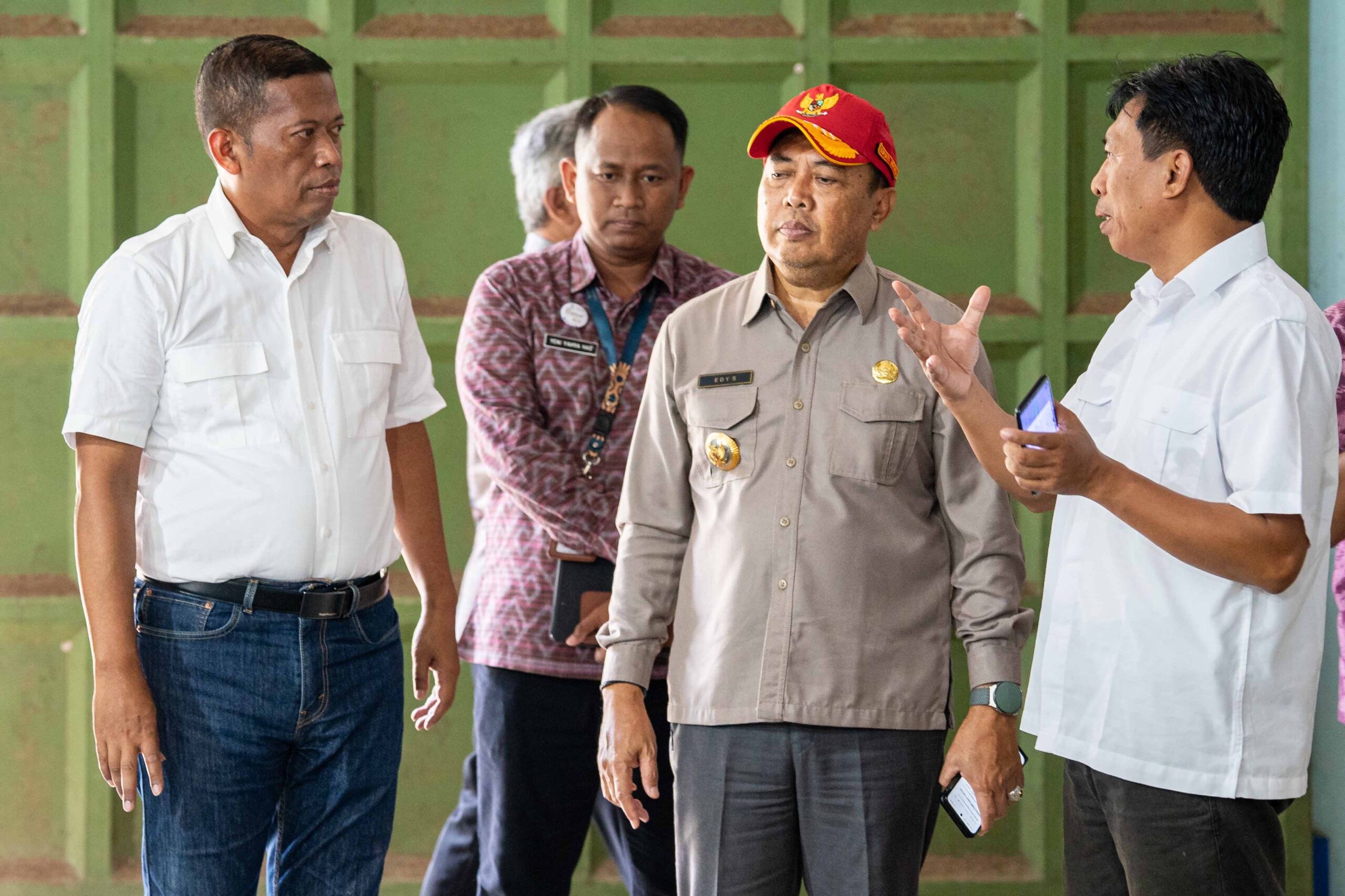Rector of Diponegoro University, Prof. Dr. Suharnomo, S.E., M.Si. Inaugurates Seawater Desalination Technology at UNDIP Teluk Awur Campus, Jepara Regency. The ceremony took place on Tuesday (May 14). This facility serves as a pilot project intended to be applied to other coastal areas in Central Java that are facing similar clean water crises.
Diponegoro University, through the Institute for Research and Community Service (LPPM), has collaborated with the Jepara Regency Government to develop desalination units, community fish ponds, and fish product processing.
In his speech during the series of events marking the signing of a cooperation agreement between LPPM UNDIP and the Jepara Regency Government, UNDIP Rector Prof. Suharnomo stated that the technology being developed supports the Tri Dharma of Higher Education, encompassing education, research, and community service. The community service includes desalination for drought-prone areas in Jepara, utilizing Jepara Regency’s fish ponds to combat fishermen’s poverty, and processing fish products in Jepara.
This effort transforms research results from UNDIP researchers, ensuring that these outcomes provide tangible economic and social benefits to the community. This initiative is also expected to contribute to poverty alleviation, particularly in Central Java.
On this occasion, UNDIP also distributed 2 tons of farmed marine tilapia to the communities of Teluk Awur, Tegal Sambi, and Semat villages. This activity exemplifies UNDIP’s role in promoting increased protein consumption among the communities surrounding the campus and implementing UNDIP’s social role.
UNDIP is the only university in Indonesia with a campus boasting the longest coastline due to its locations in Semarang and Jepara. The Jepara Campus, located in Teluk Awur Village, Tahunan District, Jepara Regency, covers an area of 52 hectares.
During the 2019-2024 period, UNDIP Rector Prof. Dr. Yos Johan Utama, S.H., M.Hum. allocated 150 billion IDR for the development of the Teluk Awur campus and to support research and innovation in fisheries and marine sciences.
Currently, several infrastructures have been established at the Teluk Awur campus, including:
- A Vannamei shrimp hatchery facility with a capacity of 100 million larvae per year;
- 80 cultivation ponds with a capacity of 150 tons per year;
- A desalination unit producing 200,000 liters of drinking water per day, powered by solar energy and developed in collaboration with the Australian National University (ANU);
- A cold storage facility with a capacity of 200 tons for preparing fish pond products projected to support the creation of export products;
- Solar panels with a capacity of 50,000 VA;
- Higher education lecture facilities with a capacity of 2,000 students, including 9 classrooms, an integrated library with UNDIP’s central library, and information technology facilities with UNDIP;
- Internship facilities for students, accommodating 600 people per year;
- Accommodation facilities for training participants and road infrastructure to support the UNDIP Teluk Awur campus with a “Training and Leisure” concept;
- Six floating net cages with a diameter of 6 meters;
- A mangrove laboratory covering approximately 3.5 hectares; and
- A Fish and Water Quality Testing Laboratory.
These facilities have been utilized for higher education lectures, field studies, internships, practical training, academic research, and vocational high school student activities from Padang Pariaman to Sorong. (MSTP & Ut-PR Team)
